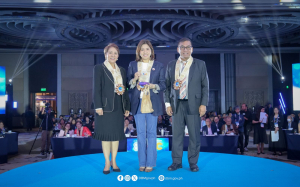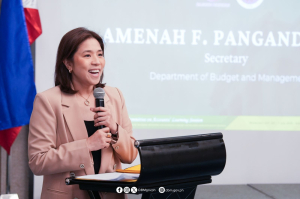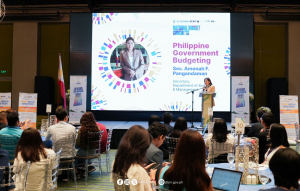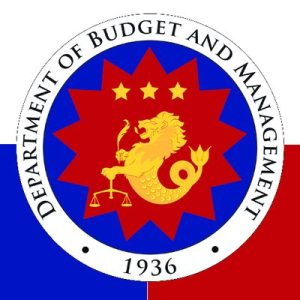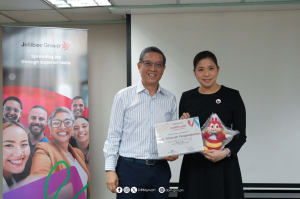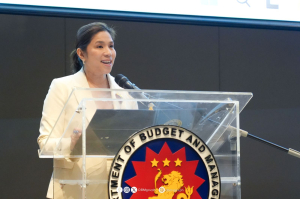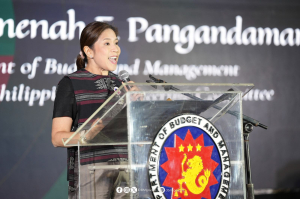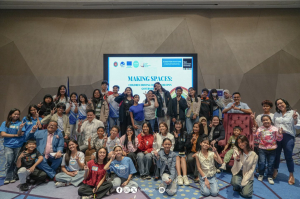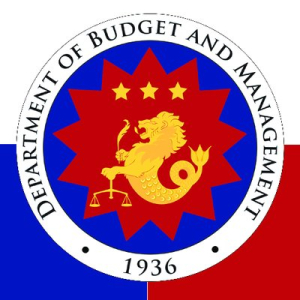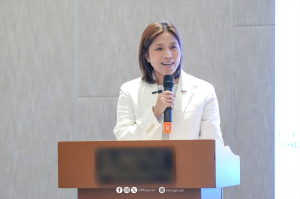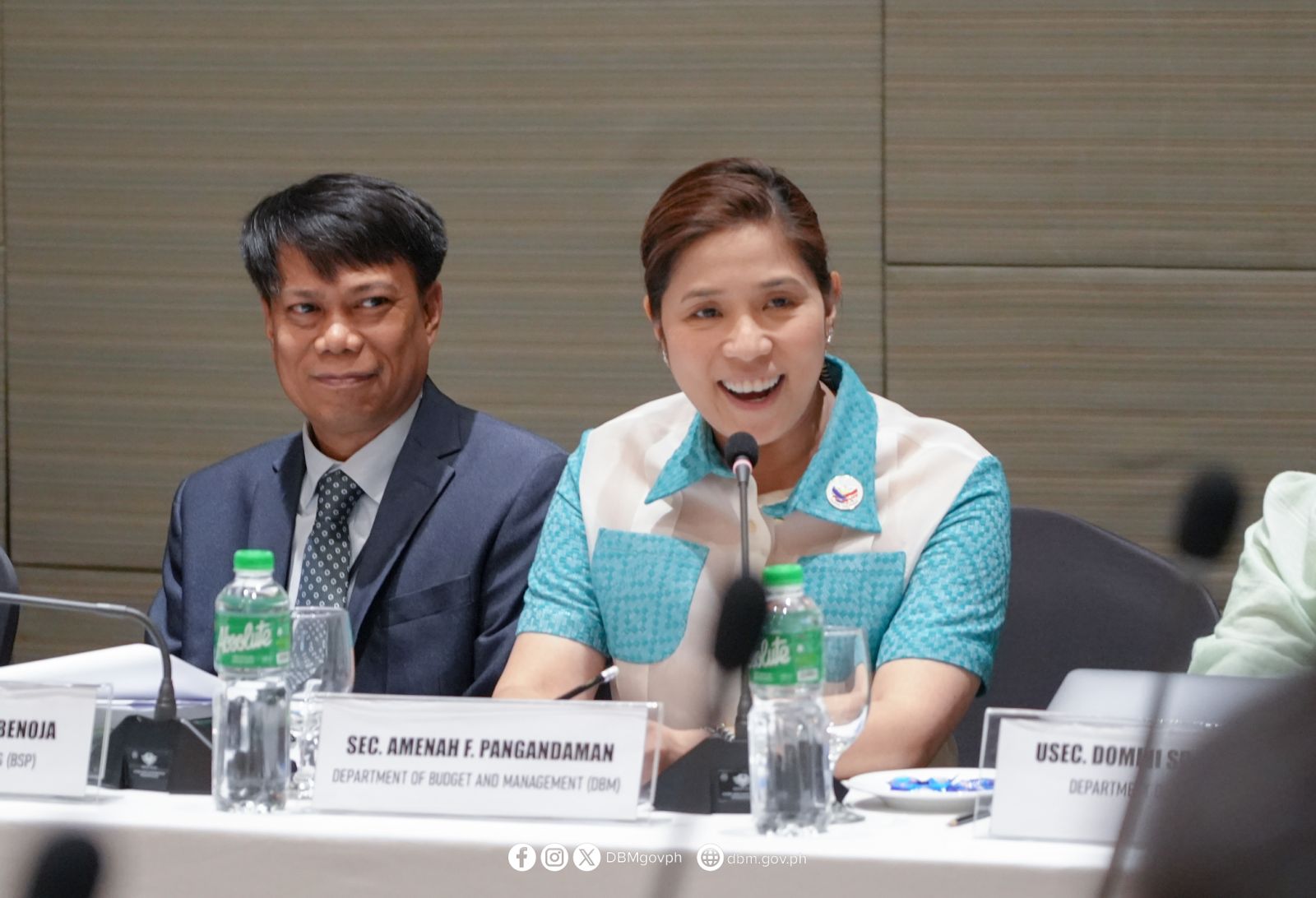
- Details

Distinguished representatives of civil society;
Partners from the business community;
Colleagues in government and fellow reformers;
A pleasant day to everyone.
Assalamu alaikum wa Raḥmatullahi wa Barakatuh.
It is my great honor to welcome you to our pioneer dialogue between representatives from the Development Budget Coordination Committee or DBCC and Civil Society Organizations (CSOs). Titled “Macroeconomic Insights for National Action: An Economic Dialogue with Civil Society”, this is a historic milestone in our journey toward a more open and inclusive governance.
Just to introduce why we are doing this, if you remember, we had the very first Asia and the Pacific Regional Meeting held last February. It was attended by a thousand participants, and we had more than 50 side events, together with the private sector and business groups.
One of the first meetings that I attended was the one with the Makati Business Club (MBC), and it was discussed there that it is their dream that when we discuss the macroeconomic targets of the national government, especially in the DBCC, if it’s possible to include the civil society and other private organizations to also take part in it. During that meeting, I said yes. So, this was a commitment at that time. Now, here we are, and we thank you for attending.
You know, the knowledge in terms of the macroeconomic prospects and targets of the national government, while we have the tools and all the best minds here, I think some areas may be left behind. There are some areas that need your input. So, that’s why we have you here. Hopefully, this will be a lively discussion today because we have two hours to discuss. I hope the numbers that we’re going to show you will meet your expectations.
For the first time, the country’s Economic Team is engaging civil society organizations in a dedicated roundtable to discuss our medium-term macroeconomic and fiscal priorities. And we are proud to hold this historic event during the #OpenGovWeek2025, a fitting moment to reaffirm our shared commitment to transparency, accountability, and citizen participation.
Before we officially begin, allow me to emphasize why it matters that all of us here are part of this conversation, particularly in relation to the work of the DBCC.
As you may know, this inter-agency committee, chaired by yours truly as Budget Secretary and now co-chaired by the Secretary of the Department of Economy, Planning, and Development or DEPDev, plays a critical role in setting the macroeconomic assumptions and fiscal targets that guide the preparation of our national budget.
This means that whether we expand access to education, improve public health systems, accelerate infrastructure development, or invest in climate resilience, all of this depends on the fiscal space and the limitations determined by the DBCC’s targets.
In this regard, while in the past, CSO consultations were only done at the Regional Development Council (RDC) level and with implementing agencies, as PH-OGP Chair, I believe that there is great value in employing citizen engagement at this time of the budget process, before the budget hearings in Congress. We welcome the voice that civil society brings and welcome your insights for these technical but crucial conversations.
Sustaining the Country’s Strong Macroeconomic Fundamentals
Let me now share some updates on the broader macroeconomic and fiscal landscape of the country.
I want to emphasize at the onset that the Philippine economy is doing well. We expanded, albeit moderately, by 5.4 percent in the first quarter of 2025, thanks to strong domestic demand and accelerated government spending.
Inflation, which the government is usually unfairly blamed for when it is in fact a pressing global issue, has been impressively managed by our economic managers through the leadership also of Bangko Sentral ng Pilipinas (BSP). As proof, you will see that for April 2025, it settled at 1.4 percent, not only well within our target range but notably the lowest inflation rate recorded since November 2019.
Employment, on the other hand, also remains robust, with a rate of 96.1 percent. This translates to over 48 million Filipinos in the workforce. With a median age of just 25 years old, we have the youngest, most dynamic, and highly skilled workforce—not just in the ASEAN but in the world.
On the fiscal front, the truth is that we have been exercising exemplary fiscal discipline, so much so that we earned an upgrade from S&P Global last November 2024, revising the Philippines’ credit outlook from “stable” to “positive.” And this is just one among a series of high credit rating affirmations last year.
This is good news because it means we are viewed internationally as an economy that is performing well. And because of this, creditors allow us to borrow at even lower costs, which translates to more meaningful investments in key sectors. This is also why we are targeting to achieve an “A” credit rating, and as long as we continue to work hard and together, I am confident that in our Road to “A,” the destination is getting near.
I am also proud to report, in case you haven’t heard, that the Philippines was recently removed from the grey list of the Financial Action Task Force (FATF)—an achievement that will further boost investor confidence and increase foreign direct investments.
So, as you can see, our economy has been improving. And it will keep improving as we continue to work hard towards much-needed reforms. Let me cite some of these reforms.
Digitalization Reforms
First, digitalization. Foremost, we are determined to fully digitalize and harmonize our Public Financial Management (PFM) systems and policies, not just to improve government efficiency, but to strengthen the public’s right to know and participate.
Central to this effort is the PFM Reforms Roadmap 2024 to 2028, our blueprint for the full digitalization of PFM processes through the adoption of the Integrated Financial Management Information System (IFMIS) across all government agencies. We turned over this Roadmap to our President in September and successfully launched it a month after with the help of the Asian Development Bank (ADB).
Just recently—again with the support of ADB and our development partners—we brought together Technical Working Groups (TWG) and PFM Committee Task Teams from different agencies for a mid-term review of our progress. These discussions focused on 11 strategic focus areas, such as Planning and Budgeting Linkage, Cash Management, Public Asset Management, Capacity Development, Digital PFM, and Public Procurement, among others, along with new monitoring and reporting mechanisms to ensure that progress is both measurable and meaningful.
Similarly, we have already launched the Budget and Treasury Management System, or BTMS, which connects existing separate systems into a central, real-time monitoring hub for government transactions.
We are also reviving Project DIME, or the Digital Information for Monitoring and Evaluation Project, a game-changing initiative that utilizes existing technologies such as satellites, drones, and geotagging to compare fund utilization with actual project completion status. This empowers us to verify development on the ground, particularly in remote areas, and opens new channels for citizen engagement and feedback because it has a feedback mechanism as well.
Just yesterday, during one of the sessions for the Open Gov Week, we took another meaningful step by signing a Memorandum of Understanding with UP-NOAH, or Nationwide Operational Assessment of Hazards for Project DIME. Through this partnership, we will integrate disaster risk reduction and climate resilience features into our monitoring tools, ensuring that public investments are not only effective but also built to withstand natural hazards.
Program Convergence Budgeting
Meanwhile, to address the overlap and redundancy of government programs, we are strengthening our efforts on Program Convergence Budgeting (PCB). For those who might not be familiar, PCB enables government agencies to work together, ensuring consistency in program targets, beneficiaries, focus areas, implementation timelines, and resource requirements, guided by a unified Master Plan or roadmap.
For the Proposed FY 2026 National Budget, we have identified 13 PCB programs—including a new one led by DBM: the PCB on PFM Systems. By continuously working closely with our partners, we will ensure that all PFM systems and policies are digitalized and harmonized, guided by the PFM Reforms Roadmap.
Not only that, we also established a Program Convergence Budgeting Steering Committee (PCB-SC)—chaired by DEPDev Secretary Arsenio M. Balisacan and co-chaired by yours truly—as the oversight body that will ensure the coordinated and synergized implementation of all PCB programs.
Climate Resilience Reforms
Towards sustainability, we are taking bold steps to ensure that our national budget reflects the growing need for climate action. Hence, our climate change expenditures more than doubled to Php 1.156 trillion this year—the largest increase since we began tracking these expenditures in 2015.
And in line with President Ferdinand R. Marcos Jr.'s vision for green governance, the DBM is proud to be the first national agency to create a Sustainability Committee and appoint a Chief Sustainability Officer, just last week, to ensure that we’re not just crafting green policies, but also running a green institution.
Procurement Reforms
But I am most proud of a reform that has been my advocacy since my first day as Budget Secretary: the New Government Procurement Act (NGPA)—now hailed as the biggest anti-corruption measure in the country’s recent history. This landmark legislation not only modernizes our procurement system but also institutionalizes the values of transparency, efficiency, and public accountability.
Through this new law, we have established an electronic Marketplace or e-marketplace—a public sector version of Lazada and Shopee where agencies can “add to cart” and directly procure supplies and equipment from competent and reputable suppliers. I am happy to share that in the first quarter alone, 86 motor vehicle orders worth approximately Php 80 million have already been processed, with 15 units delivered to agencies. We’re also expanding this to include cloud computing services and software licenses.
To streamline transactions even further, we’ve issued guidelines for the nationwide rollout of the Government Purchase Card—an alternative payment solution for procuring goods and services that cuts red tape and speeds up procurement.
To further solidify our commitment to delivering a world-class procurement system, just last month, we had the honor of hosting the East Asia and the Pacific International Public Procurement Conference, where we led the signing of the first-ever Statement of Cooperation on Public Procurement in the region, alongside our counterparts and the World Bank.
In the true spirit of open government, we have likewise introduced open contracting, making procurement data and documents publicly available at every stage—from planning to bidding, up to contract implementation.
Not only that, we have also introduced a participatory procurement process where the public can serve as observers during procurement proceedings.
As Chairperson of the Philippine Open Government Partnership (PH-OGP), I am proud that our procurement reforms reflect the very spirit of open government. We are not just buying better— we are building a procurement system that people can trust, that delivers real value, and that invites civil society as an equal partner in reform.
Open Governance Initiatives
Finally, we have been working hard on ensuring fiscal transparency, and I am proud to share that for the first time since the founding of the OGP in 2011, it was under the PBBM Administration that the PH-OGP has been institutionalized— through Executive Order No. 31, s. 2023. This only proves that open government is not just a promise—it is now part of our national policy. And we thank our President for his commitment to having an open, transparent, and accountable government.
This milestone reflects a broader transformation that is already underway. You may have not seen this in the news but in fact, the Philippines has been recognized by the International Budget Partnership as the most fiscally transparent country not just in Southeast Asia but in all of Asia, boosted by our timely and comprehensive publication of key budget documents that are open for public review and scrutiny.
We’ve also seen significant progress in press freedom. In 2025, the Philippines climbed to its highest-ever ranking in the World Press Freedom Index, reaching the 116th spot—an 18-point jump from 2024.
We hope to increase this ranking even more as we push for an enabling law that will truly uphold the people’s constitutional right to information, and as OGP Chair, I have been pushing to have an FOI Law passed. We hope that this bill will have some progress this year and in the coming new Congress. Insha Allah.
That is why, since April 2025, the PH-OGP, in partnership with the Presidential Communications Office (PCO), has conducted a series of stakeholder consultations to chart the next steps for the Freedom of Information (FOI) Bill to be a legislative priority. Participants included representatives from your organizations—the civil society, the academe, and the business community. Together, let us make our call for the passage of the FOI Bill in the 20th Congress louder and clearer.
Last February—some of you may recall because you were there—we proudly hosted the OGP Asia and the Pacific Regional Meeting, bringing together over 1,000 reformers from more than 40 countries to exchange ideas, share best practices, and reaffirm our shared mission of building an open government. This is where we heard a strong call from civil society for deeper collaboration with the country’s economic managers.
I was there, I heard you, and so today, we are here.
So, in closing, we are eager for this exchange of perspectives on our country’s macroeconomic and fiscal priorities. The insights and recommendations we gather today will be presented to the DBCC and other relevant bodies—a concrete step in creating a pathway toward a shared Agenda for Prosperity.
In this Bagong Pilipinas where we are blessed to have a government that seeks to listen in order to better perform and deliver, from the bottom of my heart as both DBCC and OGP Chair, maraming maraming salamat po sa ating mga Partners in Prosperity.
Thank you very much.
Wabillahi Tawfiq Wal Hidaya, Wasalamu alaikum wa rahmatullahi wa Barakatuhuh.
END
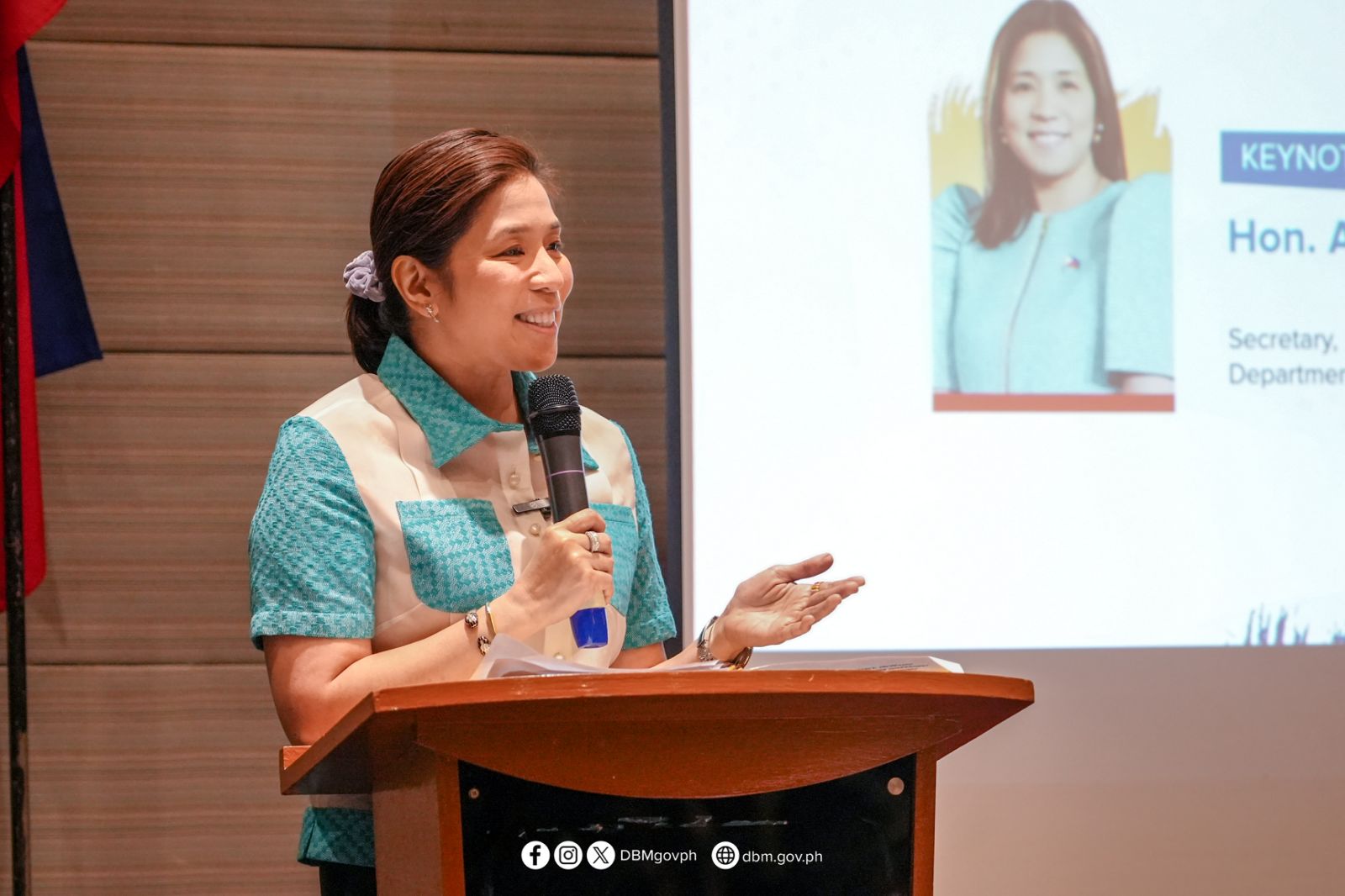
- Details

To the United Nations Development Programme (UNDP) Resident Representative to the Philippines, Dr. Selva Ramachandran;
Procurement Service - Department of Budget and Management (PS-DBM) Executive Director, Atty. Genmaries Entredicho-Caong;
And to all our fellow champions of open governance from the national government, the development sector, civil society, the academe, and the business community:
Magandang umaga po!
Assalamu alaikum wa Raḥmatullahi wa Barakatuh.
Before anything else, allow me to extend my sincerest gratitude to the UNDP and the PS-DBM for organizing this event in line with this year’s Open Gov Week celebration.
This session presents a meaningful opportunity to examine the role of Beneficial Ownership Information in advancing transparency, and to explore the potential of disclosing other procurement data to further strengthen public participation in our procurement process.
Through initiatives like these, we demonstrate the Philippine’s strong commitment to protecting the national budget from corruption and ensuring that every peso we spend translates to quality public services for the Filipino people.
In line with this, we are leveraging open governance to strengthen our public procurement system. This is crucial since public procurement remains one of the governance aspects most prone to corruption, not just in the country but across the globe.
As a global leader in open governance and now a member of the Open Government Partnership (OGP) Steering Committee, it is only fitting that we rise to this challenge by institutionalizing meaningful procurement reforms. And I am proud to say that under the leadership of our beloved President Ferdinand R. Marcos Jr., we have already made significant headway toward a procurement system that is more transparent, accountable, and responsive to the needs of our citizens.
In July 2024, we amended the Philippines’ decades-old procurement law and passed Republic Act No. 12009, better known as the New Government Procurement Act (NGPA)—the country’s biggest anti-corruption law in recent history.
This landmark legislation introduces groundbreaking transparency measures that aim to eradicate side deals, under-the-table arrangements, and uncompetitive behavior, among others, which hinder our government from delivering the best services to the Filipino people.
One of these is the mandatory declaration of Beneficial Ownership Information, which requires bidders in government procurement projects to disclose the ultimate owner of their companies. By doing so, those who attempt to use the corporate veil in performing illicit transactions with the government will be exposed and prevented from corrupting our system.
To effectively implement this, the DBM, PS-DBM, and the Securities and Exchange Commission (SEC) have entered into a Data-Sharing Agreement (DSA) to facilitate the streamlined data-sharing of corporate information stored in our agency's respective systems.
Through this, we now have an Open Data feature to our Philippine Government Electronic Procurement System (PhilGEPS) where we can see real-time numbers and data about the merchants, bids, awards, and contracts.
While we continue to strengthen our internal systems, we also engage in meaningful collaboration on both regional and global stages.
Just last month, we proudly showcased our procurement reform milestones during the East Asia and the Pacific International Public Procurement Conference (EAP IPPC), which we successfully hosted! I am proud to note that we are now an emerging global leader in public procurement, and as such, we took this valuable opportunity to champion a procurement system that truly serves the people.
All of these efforts align with the bold commitment we made through the OpenGov Challenge during the OGP Asia and the Pacific Regional Meeting. We pledged to improve data availability, enhance interoperability, and strengthen public participation in procurement. And today, it is clear that we are moving in the right direction toward fulfilling that promise.
And we will not stop here, as these achievements only inspire us to move forward with even greater determination. So today, let us reflect on our progress, reaffirm our commitment to our shared values of openness, fairness, and inclusivity in governance, and reshape our public procurement to continue benefiting all Filipinos, including future generations.
Once again, thank you to our esteemed partners. Thank you also to Bangko Sentral ng Pilipinas (BSP) Managing Director Atty. Dennis S. Santiago, who is also a procurement expert. Maraming maraming salamat sa iyong tulong, and also to UNDP and PS-DBM. Palakpakan naman natin!
Indeed, together, we are advancing toward the Bagong Pilipinas we all aspire for—a nation where transparency is woven into the fabric of our identity, and public participation is a driving force of good and open governance.
Thank you very much, and Happy Open Gov Week!
Wabillahi Tawfiq Wal Hidaya, Wasalamu alaikum wa rahmatullahi wa Barakatuhu.
END

- Details
East Asia and the Pacific International Public Procurement Conference (EAP IPPC) 2025
Quezon City

To our partners from the Open Government Partnership (OGP) Support Unit;
Department of the Interior and Local Government Secretary Juan Victor “Jonvic” Remulla;
Procurement Service-DBM Executive Director Atty. Genmaries Entredicho-Caong;
Local Chief Executives in the OGP Local Program and Open Government Challenge;
Members of the Philippine OGP (PH-OGP) Steering Committee;
And to all my fellow public servants and champions of open government and good governance:
A pleasant morning to everyone!
Assalamu alaikum wa Raḥmatullahi wa Barakatuh.
It is my honor to officially welcome you all to this year’s Open Gov Week!
We are grateful to each and every one of you for joining us in this journey to promote transparent, accountable, inclusive, and participatory governance to uplift the lives of our fellow Filipinos.
This event could not have come at a better time, as it takes place just a week after our National and Local Elections—a fitting reminder that serving our nation does not end after the campaign, and participation in governance does not end with casting of one’s votes.
According to the Democracy Index 2024, only 45 percent of the world’s population lives in a democracy, 39 percent are under authoritarian rule, and 15 percent are under electoral democracy with authoritarian tendencies.
At a time when many still endure oppression from their governments, living in a democratic country becomes not just a privilege but a responsibility to ensure that democracy remains strong, resilient, and accessible for future generations.
We must safeguard the values of democracy that embody the power of the people: freedom of speech, public participation, and equality, among others. And we must do this not only for our country but also as a member of the community of nations, to be a shining example to those around the world who are still fighting for their voices to be heard and their rights to be recognized and respected.
Indeed, we have our work cut out for us, but this Open Gov Week, we are reminded that we don’t have to face the world’s most pressing problems alone.
We stand together with the rest of the world to celebrate, inspire, and energize the movement, recognizing that it is only through global collaboration that we can effectively address the challenges we face. And I am proud to share that even before Open Gov Week, we have consistently demonstrated our commitment to fostering collective action.
In February, the Philippines successfully convened over a thousand participants for the 2025 OGP Asia and the Pacific Regional Meeting. This event strengthened regional cooperation to promote the Open Government Agenda and reaffirmed the Philippines' growing leadership as a member of the OGP Global Steering Committee.
If I may just share, during this Administration, when we started conducting OGP Week annually, we started in a very small room. Now, I am really happy to have all of you here. I think we have more than a hundred participants from different sectors. We have the civil society, national government, local government units, and State Universities and Colleges (SUCs).
We just started in a very small room in 2022, during the PBBM Administration. So, we are very happy that everyone is taking part. You have become part of the fold of the Open Government Partnership. We’re just happy that nandito kayo lahat ngayon, nakikisama po tayo, at naiintindihan ninyo po kung gaano po ka-importante ang pagkakaroon ng isang bukas na pamamahala sa ating gobyerno.
I am also proud to share with you that the Government of the Philippines has recently been appointed as the lead of the Programmatic Delivery Subcommittee (PDS) of the OGP. This subcommittee plays a vital role in providing strategic oversight on how OGP advances reforms across key thematic areas—ranging from anti-corruption to civic space and digital governance.
As lead, the Philippines will closely work with the OGP Support Unit to help scale thematic ambitions across the Partnership, support global advocacy efforts, and recommend the establishment of task forces to deepen reform outcomes.
This leadership role reflects the Philippines’ growing influence in the international OGP community and our continued commitment to shaping and driving the global Open Government Agenda.
As a testament to this, our country submitted the highest number of entries in Asia and the Pacific for the Open Gov Challenge. Palakpakan po natin ang bansang Pilipinas! This is a clear reflection of the commitment of our national and local governments, civil society organizations (CSOs), and partners in addressing governance challenges head-on.
Building on this momentum, we hosted the East Asia and the Pacific International Public Procurement Conference in April. This landmark event brought together procurement experts and champions to uphold public procurement systems rooted in the principles of good and open governance.
In the same month, we conducted a series of roundtable discussions with the government, CSOs, academe, and private sector to advance the passage of the Freedom of Information (FOI) Bill in the 20th Congress. With the steadfast support of President Ferdinand R. Marcos Jr., I am confident that we will soon pass our very own FOI law.
Meanwhile, I am proud to note that 88 local government units (LGUs) have enacted their own FOI ordinances, demonstrating the power of local governments in driving change in our communities. Palakpakan po natin!
In line with this, we are thrilled to have the OGP Local Program members today who have just launched their Local Action Plans! Their leadership is a powerful reminder that open governance is most impactful when it is local, inclusive, and people-centered. Congratulations and thank you to our local government units and all our commitment holders for embracing the challenge!
These are just a few of our accomplishments and milestones in making open government a reality for our citizens.
As we kick off this year’s celebration, let us remember that open government is more than just a concept or a campaign; it is a movement. It is the cornerstone of our Bagong Pilipinas—a nation that thrives through transparent governance, accountable leadership, and active citizen participation.
Maraming salamat po, and I wish everyone a meaningful and inspiring Open Gov Week 2025!
Wabillahi Tawfiq Wal Hidaya, Wasalamu alaikum wa rahmatullahi wa Barakatuhu.
END
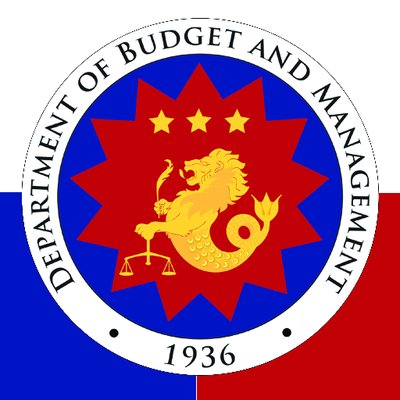
- Details
To all the champions and advocates of open government and good governance from the national government, civil society, the academe, the private sector, and the business community, good day.
Assalamu alaikum wa Raḥmatullahi wa Barakatuh.
As Chair of the Philippine Open Government Partnership (PH-OGP), I am honored to welcome you to this initial roundtable stakeholder consultation, which amplifies our renewed call for the institutionalization of Freedom of Information (FOI).
For over three decades since the filing of the very first FOI Bill, we have yet to pass an enabling law that will truly uphold the people’s constitutional right to information.
In 2016, Executive Order No. 2 was issued to operationalize this right, recognizing that every Filipino shall have access to information, and official and public records, with information that may compromise national security being the only exception.
In support of this, the Presidential Communications Office (PCO) manages the eFOI portal, allowing Filipinos to easily request the information they need from government agencies from the comfort of their homes.
We likewise marked a historic feat for good governance in the country through the institutionalization of PH-OGP with the signing of Executive Order No. 31 by President Ferdinand R. Marcos Jr. in 2023—12 years since we became a founding member of the OGP. This paved the way for our Executive, Legislative, and Judicial branches—despite being independent of each other—to work hand-in-hand and synchronize open government reforms.
And as a testament to our commitment to upholding access to information and fiscal openness, we have cemented our position as the most fiscally transparent country not just in Southeast Asia, but in the whole of Asia, based on the 2023 Open Budget Survey.
Alongside this, the Philippines officially joined the OGP Steering Committee in October 2024, giving us a golden opportunity to elevate our regional and global open government initiatives.
Finally, at the 2025 OGP Asia and the Pacific Regional Meeting which our country hosted in February, PBBM highlighted in his keynote address that “citizens can only truly participate in governance if they have access to information.” He cited this in front of over a thousand OGP leaders from governments and civil society from 40 participating countries in the Asia-Pacific and beyond.
We are thankful to the President as this is very much aligned with our vision of finally achieving the passage of the FOI Bill into law, also in line with our efforts to make the Philippines a global leader in transparency, accountability, and citizen participation in governance.
We may have a long road ahead, just as we have for the past decades, but here at PH-OGP, we don’t make empty promises. We march on and take action to fulfill our commitments, especially because we have the support of no less than our President.
And today, we are holding this series of consultations to chart the next steps in ensuring that the FOI Bill—one that is truly co-created with stakeholders for the people—will be considered a legislative priority in the 20th Congress.
Kagaya po ng lagi kong panawagan: sama-sama po nating gawing tunay na bukás ang Bagong Pilipinas para sa ating mas magandang bukas.
Thank you once again for joining us and we look forward to hearing your insights.
Wabillahi Tawfiq Wal Hidaya, Wasalamu alaikum wa rahmatullahi wa Barakatuhu.
END

- Details
To the Public Financial Management (PFM) Committee, representatives from our resource institutions, esteemed colleagues from the national government, and, of course, to our very supportive development partners, a pleasant day to everyone.
Assalamu alaikum wa Raḥmatullahi wa Barakatuh.
First, my apologies for not being able to join you in person today as I am currently in Milan, Italy for the 58th Annual Meeting of the Asian Development Bank (ADB) Board of Governors.
Nonetheless, allow me to extend my sincerest gratitude to the ADB for hosting this Workshop Series for the Mobilization and Implementation of the Philippine PFM Reforms Roadmap 2024-2028. This milestone signifies that we are ready to shift gears and translate the strategies outlined in our roadmap into concrete actions that will bring our goals to fruition.
Conducting this workshop just eight months after we officially endorsed the PFM Reforms Roadmap to President Ferdinand R. Marcos Jr. is proof that when committed PFM advocates are guided by a clear vision, we don’t wait for the perfect moment. We create the momentum and move forward with determination.
With the participation of our Technical Working Groups, Committees, and even the newly created Task Teams, I am confident that we are all set to implement our PFM reforms, particularly the critical interventions we have committed across the eleven (11) strategic focus areas.
In fact, even at this early stage, our efforts to modernize our PFM policies and processes have already produced significant results. For one, the enactment of Republic Act No. 12009 or the New Government Procurement Act in July 2024 advances our goal of enhancing transparency and efficiency in our public procurement, as outlined in our PFM Reform Agenda.
Meanwhile, under the Digital PFM strategic focus area, I am proud to share that we have successfully launched the Budget and Treasury Management System (BTMS), which serves as the interoperable core of the government’s Integrated Financial Management Information System (IFMIS). This ensures the transparency, accuracy, and timeliness of budget and financial accountability reports, enabling us to make evidence-based governance decisions.
Towards improving the monitoring and evaluation of our public expenditures, we recently conducted the Forum on the Enhanced Agency Performance Reviews (EAPR) to hold all our government agencies accountable and evaluate whether our public funds have truly contributed to our national development goals.
Further, we signed two Joint Memorandum Circulars with the Department of Economy, Planning, and Development (DEPDev): one on Program Convergence Budgeting and another on the Revised National Evaluation Policy Framework (NEPF). These policy initiatives aim to strengthen the linkages among all stages of expenditure management—from planning to programming to accountability.
Indeed, we have made significant progress in our shared journey of transforming and harmonizing our PFM systems. However, we must acknowledge that there is still so much more to be done, especially now that we have completed the Public Expenditure and Financial Accountability and the Disaster Resilient and Responsive PFM, or the PEFA++ and the DRR-PFM Assessments—thanks to the unwavering support of our development partners and dedicated government assessment team.
The PEFA++ and DRR-PFM offer an objective assessment of our current PFM system, focusing on its responsiveness to gender, child welfare, climate change, and disaster resilience. The results, offering us nearly a 360-degree view of our PFM landscape, will be instrumental in shaping our priorities in the years ahead.
The good news is that this four-day workshop provides us with an opportunity to learn more about the recommendations from the PEFA Assessments even before the publication of the results in June. I encourage you to reflect on these insights to identify policy gaps, design action steps, develop implementation plans, and, most importantly, leverage the power of collaboration.
Sama-sama po nating itaas ang Bagong Pilipinas! Remember, the stronger the alignment of our initiatives, the more meaningful and lasting the outcomes will be for our people.
So, let this workshop be another jump-off point for us toward concrete and coordinated action to implement the PFM Reforms Roadmap 2024-2028. Together, let us ensure that this strategic document leads to improved public service delivery—one that addresses the needs and fulfills the aspirations of Filipinos.
Maraming salamat po at mabuhay tayong lahat!
Wabillahi Tawfiq Wal Hidaya, Wasalamu alaikum wa rahmatullahi wa Barakatuhu.
END
More Articles …
- BEARING THE TORCH TOWARD PEOPLE-CENTERED PUBLIC PROCUREMENT
- Multisectoral Interventions and Needs-Based Approach: Key to Advancing the Women, Peace, and Security Agenda
- BUILDING A BETTER FUTURE: DBM’S COMMITMENT TO LEGISLATIVE ACTIONS AND FISCAL REFORMS
- Beyond Budget: Priorities, Challenges, and the Road Ahead
